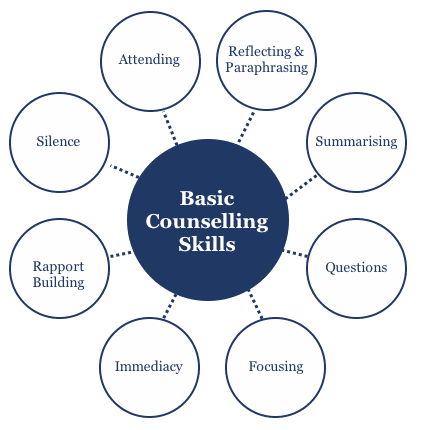A Comprehensive Guide to the Various Sorts Of Therapy and Their Effect
Therapy encompasses a range of healing approaches, each created to fulfill unique mental wellness demands. From the structured methods of Cognitive-Behavioral Treatment to the understanding nature of Person-Centered Therapy, these modalities use distinctive paths to personal growth. Household treatment and Dialectical Behavior modification give additional frameworks for healing, while group therapy cultivates area assistance. Understanding these diverse methods can illuminate their profound influence on specific wellness. What stays to be explored are the details of each strategy.

Comprehending Cognitive-Behavioral Therapy (CBT)
Although several therapeutic methods exist, Cognitive-Behavioral Therapy (CBT) stands apart because of its organized, ambitious nature. This kind of treatment is based on the facility that ideas, feelings, and actions are interconnected, and by altering adverse idea patterns, individuals can change their psychological reactions and activities. CBT uses various methods, such as cognitive restructuring, which aids clients determine and test altered beliefs. Behavioral activation motivates engagement in pleasant activities to fight depression.
Typically, CBT is a short-term therapy, usually long-term in between 12 to 20 sessions, making it easily accessible for those seeking quick outcomes. Its performance has actually been well-documented in dealing with anxiousness conditions, depression, and other psychological health and wellness problems. The therapist's duty is to assist clients through workouts and homework assignments, cultivating self-awareness and advertising long-term coping strategies. This sensible technique empowers people to take control of their psychological wellness, eventually causing boosted life fulfillment.
Exploring Person-Centered Therapy
Person-Centered Treatment, established by Carl Rogers, provides a different method to Cognitive-Behavioral Therapy by highlighting the client's subjective experience. This restorative model focuses on the individual's viewpoint, fostering a setting of empathy, genuine favorable respect, and credibility. By allowing customers to discover their sensations and ideas without judgment, therapists promote personal growth and self-discovery.
The core tenet of Person-Centered Therapy is the belief that people have the intrinsic capacity for self-healing and personal growth. In this setting, the therapist works as a helpful overview as opposed to a regulation authority, urging clients to organize their very own trip. This method is especially reliable for those grappling with problems such as reduced self-esteem, stress and anxiety, or clinical depression, as it empowers them to face and recognize their emotions. Ultimately, Person-Centered Therapy grows a solid therapeutic alliance, promoting trust and openness crucial for meaningful modification.
The Function of Household Treatment in Recovery
Family members treatment acts as an essential element in the recovery procedure for people and their relationships. This restorative technique concentrates on boosting interaction, dealing with conflicts, and promoting deeper connections amongst member of the family. By resolving inefficient characteristics, family treatment urges each participant to express their ideas and sensations in a secure setting, advertising understanding and compassion.

The influence of household treatment prolongs past the sessions, as enhanced partnerships can cause enhanced emotional health for all included. On the whole, household treatment plays an important role in healing by cultivating unity, resilience, and shared support among member of the family, ultimately assisting them towards a healthier, a lot more fulfilling life together.
Unloading Dialectical Behavior Modification (DBT)
Structure on the foundation of restorative strategies that enhance psychological health, Dialectical Behavior modification (DBT) offers a structured structure for people fighting with intense feelings and behavior challenges. Developed by Marsha Linehan, DBT integrates cognitive-behavioral strategies with mindfulness techniques, intending to help clients handle frustrating sensations and improve interpersonal efficiency.
The treatment is specifically beneficial for those diagnosed with Borderline Character Condition yet is additionally applicable to a series of various other mental health and wellness concerns. adhd counselling. DBT contains specific treatment sessions and abilities training teams, concentrating on 4 vital capability: mindfulness, distress resistance, feeling guideline, and social efficiency
The Advantages of Group Therapy Procedure
While private treatment offers valuable understandings, group counseling sessions use unique benefits that can substantially boost the healing experience. One vital advantage is the feeling of community that arises among participants. People frequently locate convenience in sharing their experiences with others encountering similar challenges, cultivating a helpful atmosphere that lowers feelings of seclusion.
Moreover, group sessions encourage diverse viewpoints, allowing participants to find out from each various other's coping techniques and understandings. This collective wisdom can cause boosted problem-solving capabilities and a wider understanding of individual concerns.
In addition, group counseling typically advertises liability, as participants motivate each other to pursue their objectives and stick to their commitments. The cost-effectiveness of group treatment makes it an easily accessible choice for several individuals looking for assistance. Overall, the joint nature of team therapy sessions can greatly improve the therapeutic journey.
Regularly Asked Inquiries
What Certifications Do Specialists Need to Exercise Counseling?
Therapists typically require a pertinent level in psychology or therapy, together with monitored clinical experience. In addition, they click here should get ideal licensure or certification to practice lawfully, making certain adherence to professional standards and ethical standards.
How Do I Choose the Right Kind of Treatment for Me?
Picking the appropriate type of therapy entails assessing personal needs, exploring various techniques, taking into consideration specialist specializeds, and seeking referrals. Recognizing private goals and choices can considerably boost the efficiency and fulfillment of the restorative experience.

Are Online Therapy Procedure as Effective as In-Person Ones?
The performance of on-line therapy sessions compared to in-person ones often depends on individual preferences and circumstances. Study shows that both techniques can generate favorable end results, though some might find better comfort in face-to-face interactions.
The Length Of Time Does Therapy Commonly Last?

What Should I Anticipate Throughout My Very First Therapy Session?
Throughout the initial therapy session, clients can anticipate an intro, conversation of their worries, facility of goals, and a summary of the counseling procedure - virtual therapy. This preliminary conference aims to develop relationship and warranty comfort